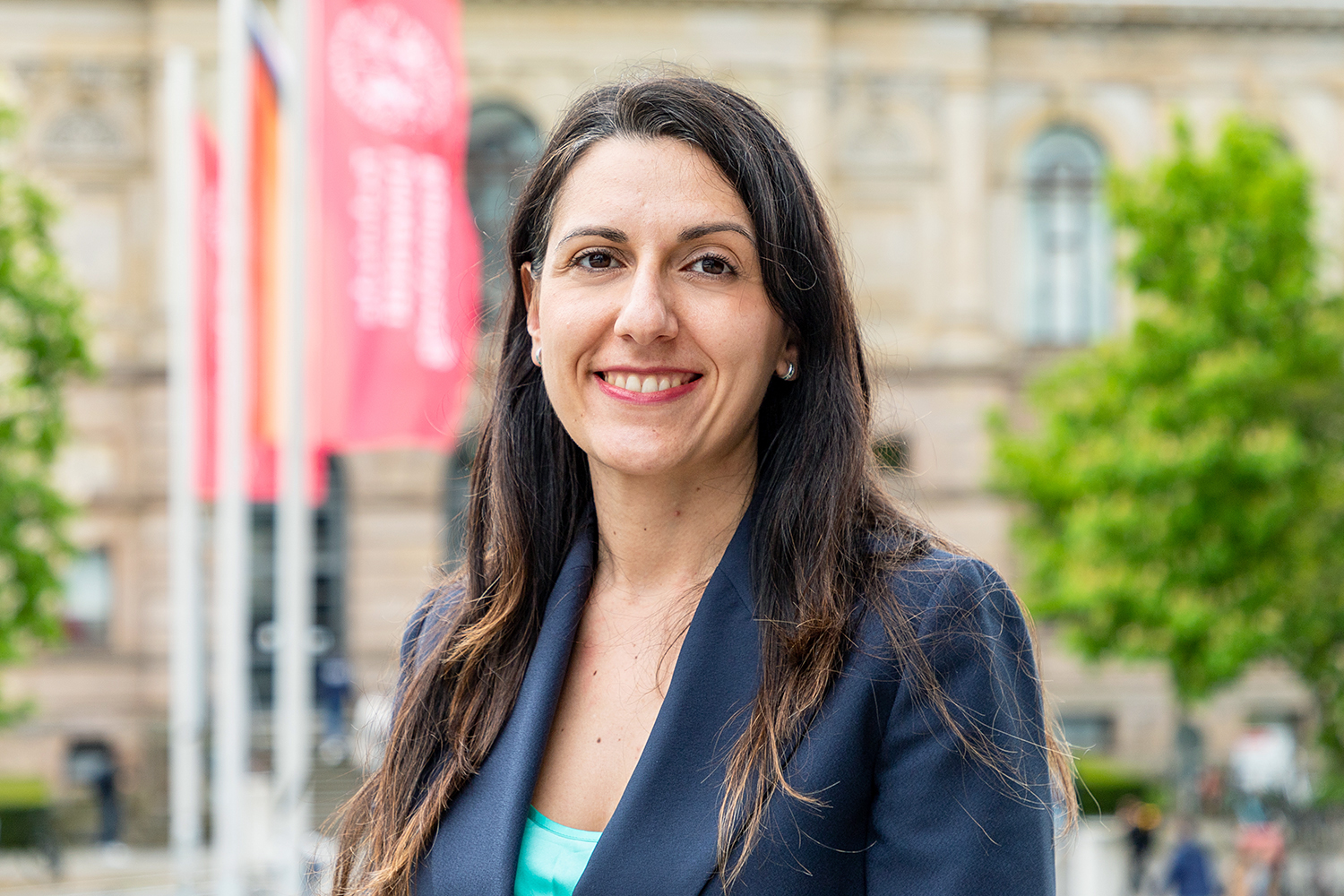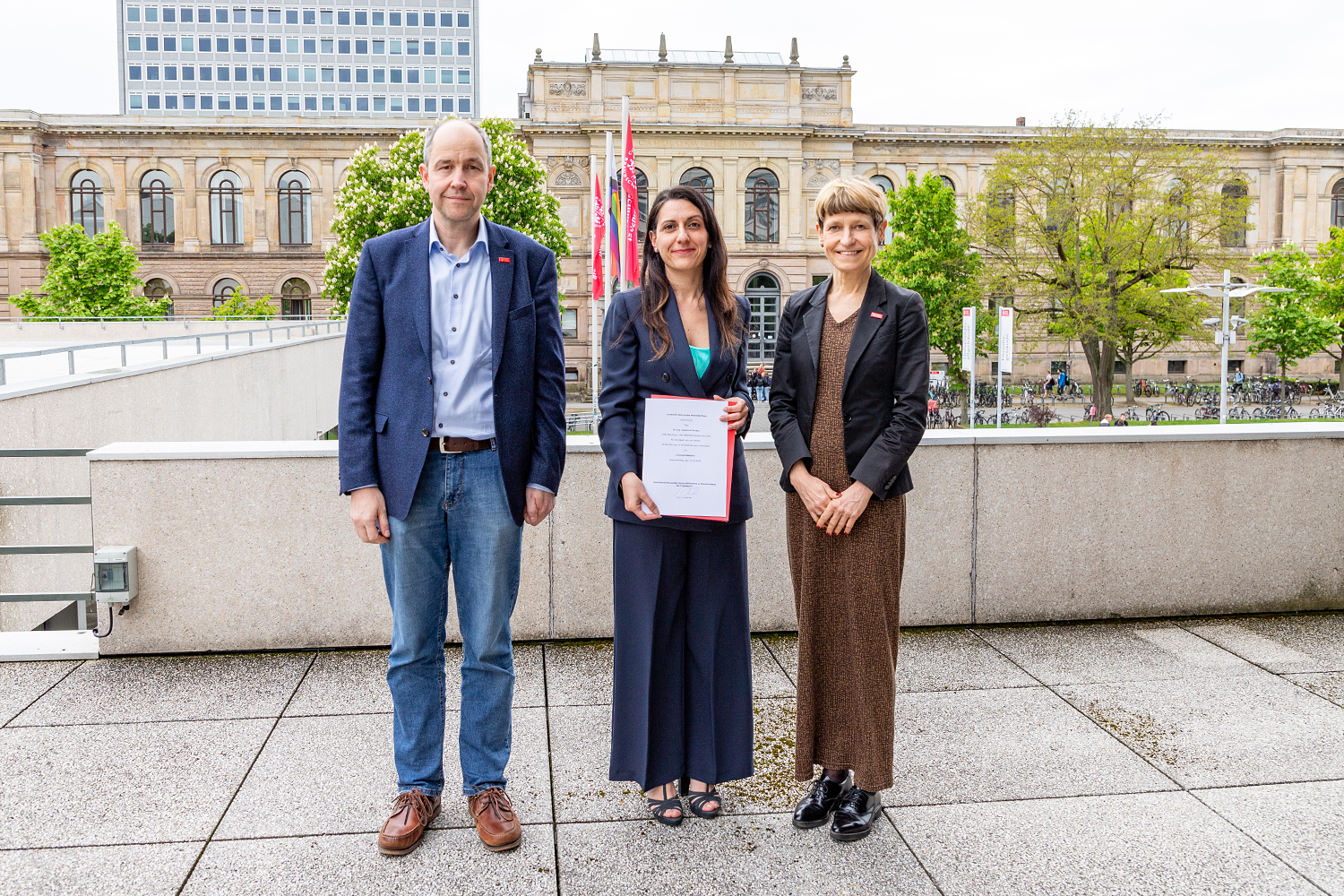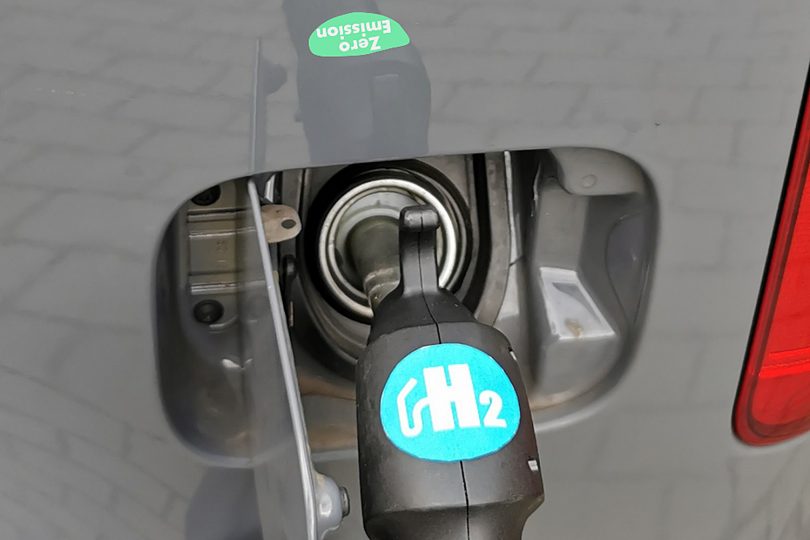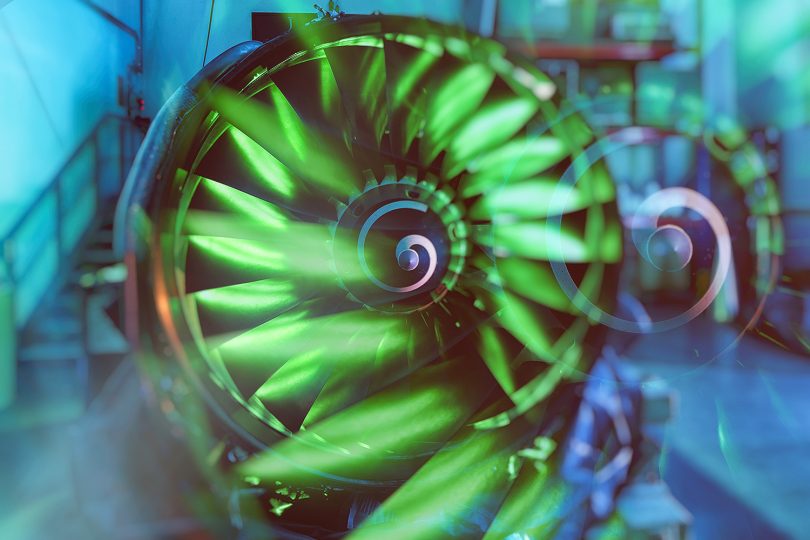Sustainable alternatives to fossil fuels Federica Ferraro is a new junior professor at the Institute of Flight Propulsion and Turbomachinery
One factor for a more sustainable future is the replacement of fossil fuels with more climate-friendly and renewable options. Federica Ferraro is researching this at the Institute of Jet Propulsion and Turbomachinery and in the Cluster of Excellence SE²A. She has been a junior professor at TU Braunschweig since May 2023. In the interview, she explains how her fascination for combustion physics was awakened.
Why did you choose the TU Braunschweig?

Federica Ferraro is a new junior professor at the Institute of Flight Propulsion and Turbomachinery. Picture credits: Kristina Rottig/TU Braunschweig
I chose the TU Braunschweig because of its leading position in aerospace engineering research in Germany. I find it extremely attractive that this University has set sustainable mobility technologies as a mission for the entire Institution and is committed to making a difference in the field. Furthermore, the collaborative synergy among the Aeronautics Research Centre Niedersachsen (NFL), the German Aerospace Center (DLR), and the Cluster of Excellence for Sustainable and Energy Efficient Aviation (SE2A) represents a dynamic ecosystem that perfectly aligns with my research interests. I believe that the network of TU Braunschweig provides the ideal breeding ground to achieve my goals.
What exactly do you research?
My research is focused on finding strategies to replace fossil fuels and contribute to building a more sustainable environment for future generations. In recent years, our planet has been experiencing rapid climate changes marked by a dramatic rise in temperatures and more frequent extreme events such as storms and tornadoes. To tackle this, we need to cut down the greenhouse gas emissions and rapidly switch to cleaner technologies. This is a huge challenge not only for researchers, but I would say, for all inhabitants of this planet!
In my group, we are using high-performance computers to do virtual experiments on sustainable alternatives to fossil fuels. For example, we explore how sustainable kerosene, produced by biomass or renewable energy, and hydrogen can be used for airplanes.
What are the main research areas and projects you will be working on at TU Braunschweig?
I will be focused on two main areas: studying how sustainable fuels burn and developing numerical models of turbulent multiphase reacting flows. I will be part of the Excellence Cluster for Sustainable and Energy Efficient Aviation (SE2A) and collaborating with my previous Institution, the TU Darmstadt, I will continue our work in the CRC/TRR 150 on “Turbulent, chemically reactive, multiphase flows near walls”.

Prof. Markus Böl, Dean of the Faculty of Mechanical Engineering, Prof. Federica Ferraro and TU President Angela Ittel (from left to right). Picture credits: Kristina Rottig/TU Braunschweig
What formed your decision to do research in this area?
The first spark of my passion for combustion research ignited during my master’s thesis in space propulsion. While working on a project involving the ignition of a solid rocket engine, I realized how fascinating was to study combustion physics and its efficient use for propulsion. Following my master’s degree, my journey brought me to Germany for my Ph.D. I studied the turbulent combustion phenomena and developed a new numerical model able to efficiently simulate these processes. The final aim is implementing interventions to make it more sustainable for the planet.
Many aspects of modern life, like industry, heating, and transportation, rely heavily on burning fossil fuels for energy. Aviation, in particular, is one of the hard-to-decarbonize sectors. The research community should be laser-focused on potential solutions that may facilitate a smoother transition from traditional fossil fuels to renewable energy sources. Synthetic fuels and hydrogen show great potential in this regard. However, extensive research and development efforts are needed to make these solutions viable.
What does your daily work routine look like in three key words?
Exploration of new concepts, Commitment, Teaching and mentoring of students and PhD candidates. May I add a fourth? Coffee! Fuel for the mind!


